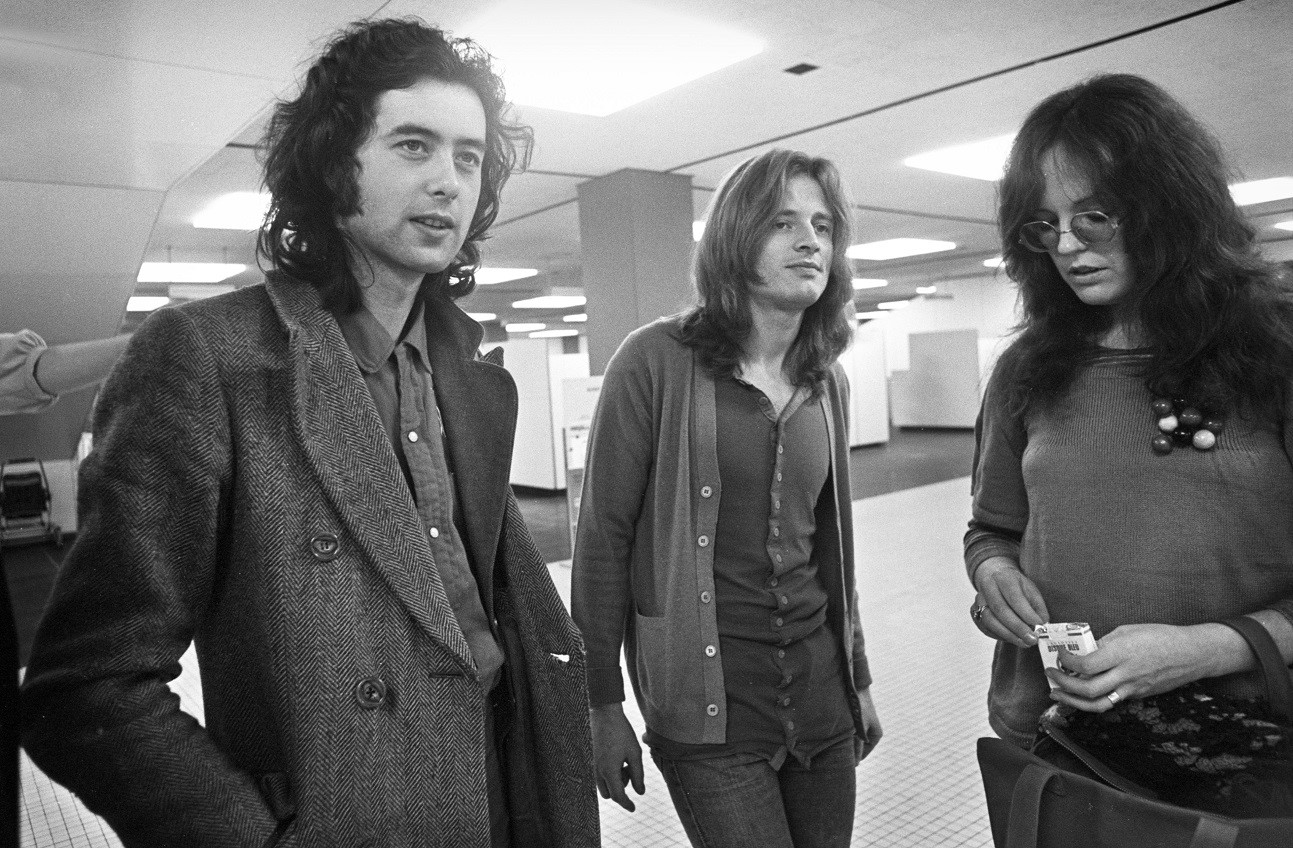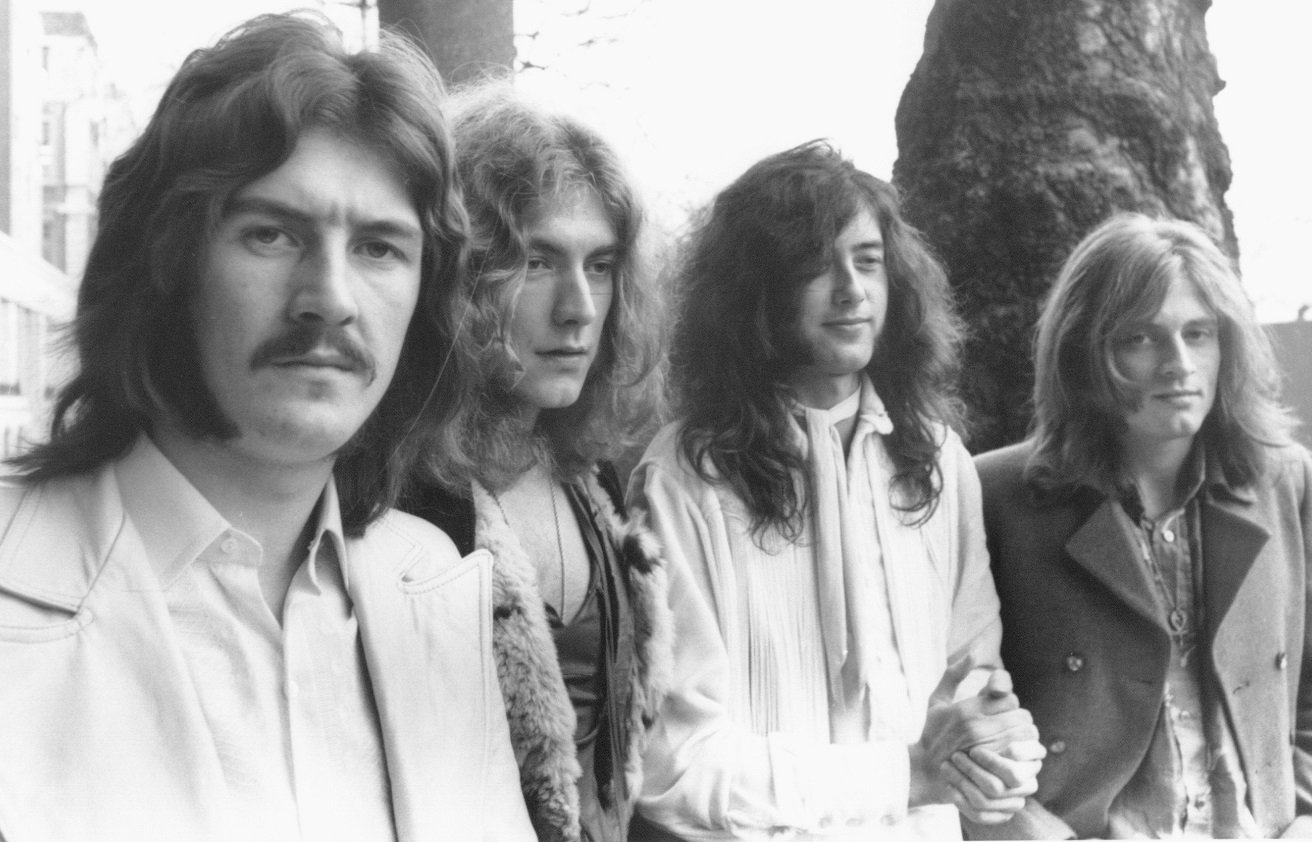The ‘Cardinal Sin’ Led Zeppelin Committed on ‘Stairway to Heaven’
Even the biggest Led Zeppelin fan might groan when they hear the opening notes of “Stairway to Heaven,” the epic track that closed out side of 1 of Zep’s landmark fourth album (1971). The reason is simple: The song became unfathomably popular, and DJs and fans played it to death throughout the ’70s (and ever after).
Yet “Stairway” more than holds up after all these decades. Robert Plant might not want to sing it anymore, but he would never deny its appeal. “The construction of the song, the actual musical construction is very, very good,” Plant told Ultimate Classic Rock Nights in 2019. “[It] really can stand without a vocal.”
Over the years, Jimmy Page has explained how he tackled the song’s composition. Obviously, he wanted to construct a song with multiple movements and moods, and one that built to a rousing close. To do that, Page had to violate a rule musicians typically observed.
Led Zeppelin’s ‘Stairway to Heaven’ sped up in a way musicians were taught not to do

When you look at the sheet music or just listen to “Stairway to Heaven,” you know the song’s crescendo involves more than changes in volume and tone. By the time Plant belts out “And as we wind on down the road,” the Zep is playing at a much faster tempo than it started with.
For Page, speeding up at the end was a conscious decision — one that broke an unwritten rule. He explained in Mick Wall’s When Giants Walked the Earth. “When I did studio work, and when John Paul Jones did studio work, the rule was always you don’t speed up,” Page said. “That was the cardinal sin, to speed up.”
At this point in Led Zeppelin’s career, the band felt such rules didn’t apply to them. “I thought, ‘Right, we’ll do something that speeds up,'” Page told Wall. “But that, seriously, was another thing we always did in Zeppelin. If it started to move in tempo, don’t worry. It’s finding its own tempo. Don’t worry, just all stay together.”
Jimmy Page’s ‘Stairway’ solo continues to rank among rock fans’ favorite

While Plant outgrew the lyrics he penned as a 22 year old, the performances by all four Zeppelin members have never grown stale. You might take note of the five instrumental parts (three flutes, bass, and keyboard) Jones played. Or you might just sit back and listen to an angry John Bonham delivering some of his finest work on drums.
Yet Page’s guitar solo has as much to do with the song’s enduring popularity as anything. Most Zeppelin fans probably remember where they were when they first heard it (in my case, on a Walkman, listening to a Philadelphia classic rock station on the way home from elementary school, having missed the first six-odd minutes).
Whenever rock fans vote on the greatest solo ever played, you find Page’s work on “Stairway” near the top (if not No. 1). So how did he do it? As was his wont, Page took three (mostly improvised) cracks at it on his Fender Telecaster. Then he just picked the one he liked best. Call it “magick” if you like.


